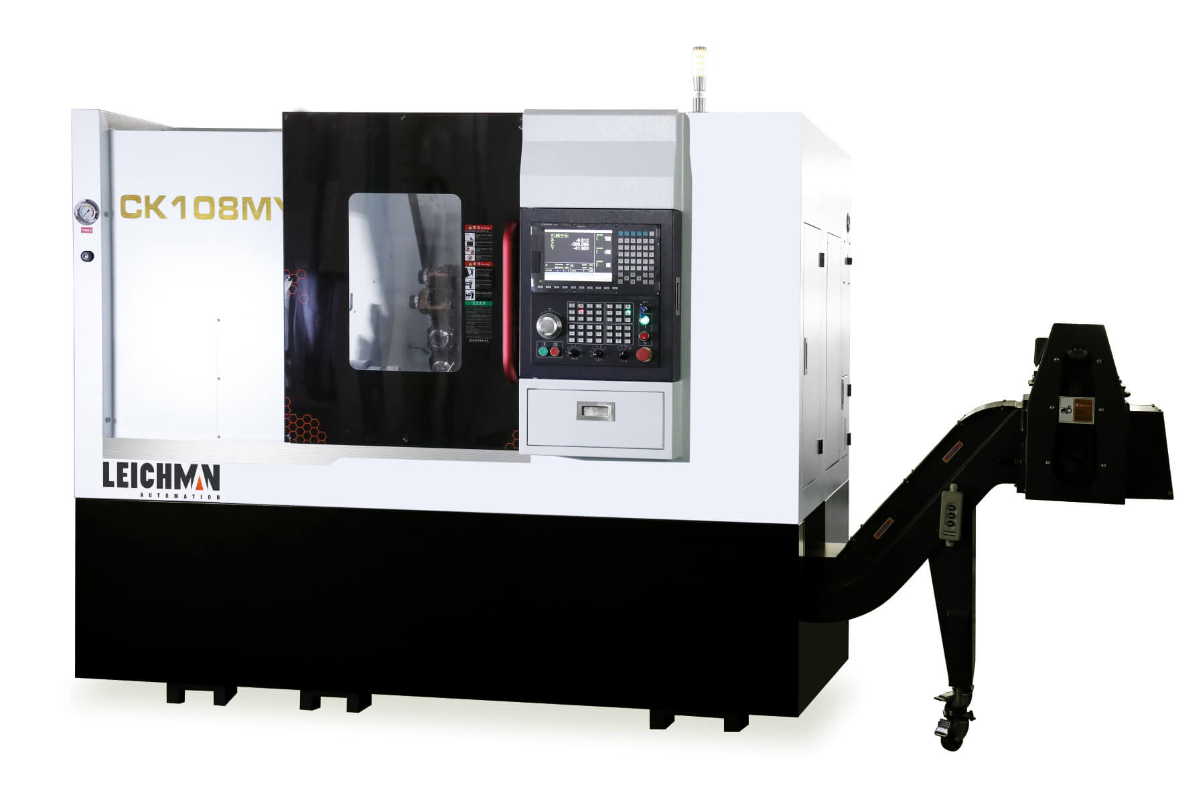What is a CNC Lathe Machine and How Does It Differ From a Conventional Lathe?
In this comprehensive article, we delve into the world of CNC (Computer Numerical Control) lathe machines and their differences compared to conventional lathes. As experts in the field of CNC technology, we aim to provide you with in-depth insights and knowledge, enabling you to grasp the fundamental concepts and advantages of CNC lathe machine. So, let's get started!

Introduction to CNC Lathe Machines
A CNC lathe machine is a cutting-edge manufacturing tool that utilizes computerized controls to automate various machining processes. The CNC technology empowers the lathe to execute precise and complex operations with exceptional accuracy and repeatability. These machines have revolutionized the manufacturing industry, enabling faster production, improved efficiency, and higher quality products.
The Working Principle of CNC Lathe Machines
CNC lathe operate on the basic principle of subtractive manufacturing. The material, typically a metal workpiece, is rotated against a cutting tool, which shapes it into the desired form. The difference lies in the way these machines are controlled and operated.
Understanding the Difference: CNC Lathe vs. Conventional Lathe
1. Control Mechanism
The primary distinction between the two lies in how they are controlled. Conventional lathes are manually operated by skilled machinists, who control the cutting tools and adjust the machine's settings by hand. On the other hand, CNC lathes are automated and controlled by computer programs, which means that they can be programmed to perform specific tasks with precise instructions.
2. Precision and Accuracy
CNC lathe machines are renowned for their unparalleled precision and accuracy. The automated nature of CNC lathes eliminates human errors and ensures consistent, tight tolerances in the finished products. Conventional lathes, although operated by skilled professionals, may have slight variations in precision due to human factors.
3. Complexity of Operations
CNC lathes can effortlessly handle intricate and complex machining tasks that would be challenging for conventional lathes. The ability to program precise tool paths allows CNC lathes to create intricate designs and produce complex components with ease.
4. Setup Time and Efficiency
Conventional lathes require manual setup and adjustments, which can be time-consuming. In contrast, CNC lathes have quicker setup times, as the necessary information can be loaded into the machine through computer programs. This leads to higher productivity and reduced downtime.
5. Flexibility and Versatility
CNC lathe machines offer remarkable flexibility, as they can quickly switch between different machining operations without extensive manual adjustments. This versatility allows manufacturers to produce diverse parts efficiently, making CNC lathes ideal for high-mix, low-volume production.
Advantages of CNC Lathe Machines
CNC lathe machines come with a plethora of advantages that make them indispensable in modern manufacturing:
1. Increased Productivity
With their automated processes and reduced setup times, CNC lathes significantly enhance productivity, leading to higher production volumes and faster turnaround times.
2. Consistency and Quality
The precise and consistent performance of CNC lathes ensures superior product quality and minimizes the chances of defects or rejects, ultimately saving time and resources.
3. Cost-Effectiveness
While the initial investment in CNC lathe machines may be higher, their long-term benefits in terms of increased efficiency and reduced waste make them a cost-effective choice.
4. Reduced Labor Dependency
CNC lathes reduce the reliance on skilled labor, as they can be operated by technicians with basic programming knowledge, saving on labor costs.
5. Enhanced Safety
The automation of CNC lathes reduces the risk of accidents and injuries associated with manual machining, making the workplace safer for operators.
How to Choose the Right CNC Lathe Machine?
Selecting the ideal CNC lathe machine for your specific needs requires careful consideration of various factors:
1. Project Requirements
Assess your project's specifications, including the type of materials, size, and complexity of components to determine the required capabilities of the CNC lathe.
2. Programming and Software
Look for a CNC lathe machine with user-friendly programming software, allowing you to easily create and modify machining instructions.
3. Workpiece Size and Capacity
Consider the maximum workpiece size and weight that the CNC lathe can accommodate to ensure it meets your production demands.
4. Tooling and Accessories
Evaluate the availability and compatibility of tooling options and accessories, as they can significantly impact the machine's versatility.
5. After-Sales Support
Choose a reputable manufacturer that offers excellent after-sales support, including training, technical assistance, and spare parts availability.
Conclusion
In conclusion, CNC lathe machines have transformed the manufacturing landscape with their unparalleled precision, efficiency, and automation. The shift from conventional lathes to CNC lathes has empowered industries to achieve higher productivity, better product quality, and improved cost-effectiveness.
If you are considering integrating Gang Type CNC Lathe into your manufacturing processes, make sure to thoroughly evaluate your requirements and choose a machine that aligns perfectly with your specific needs. Embracing CNC technology is a surefire way to stay ahead in the competitive manufacturing sector.
评论
发表评论